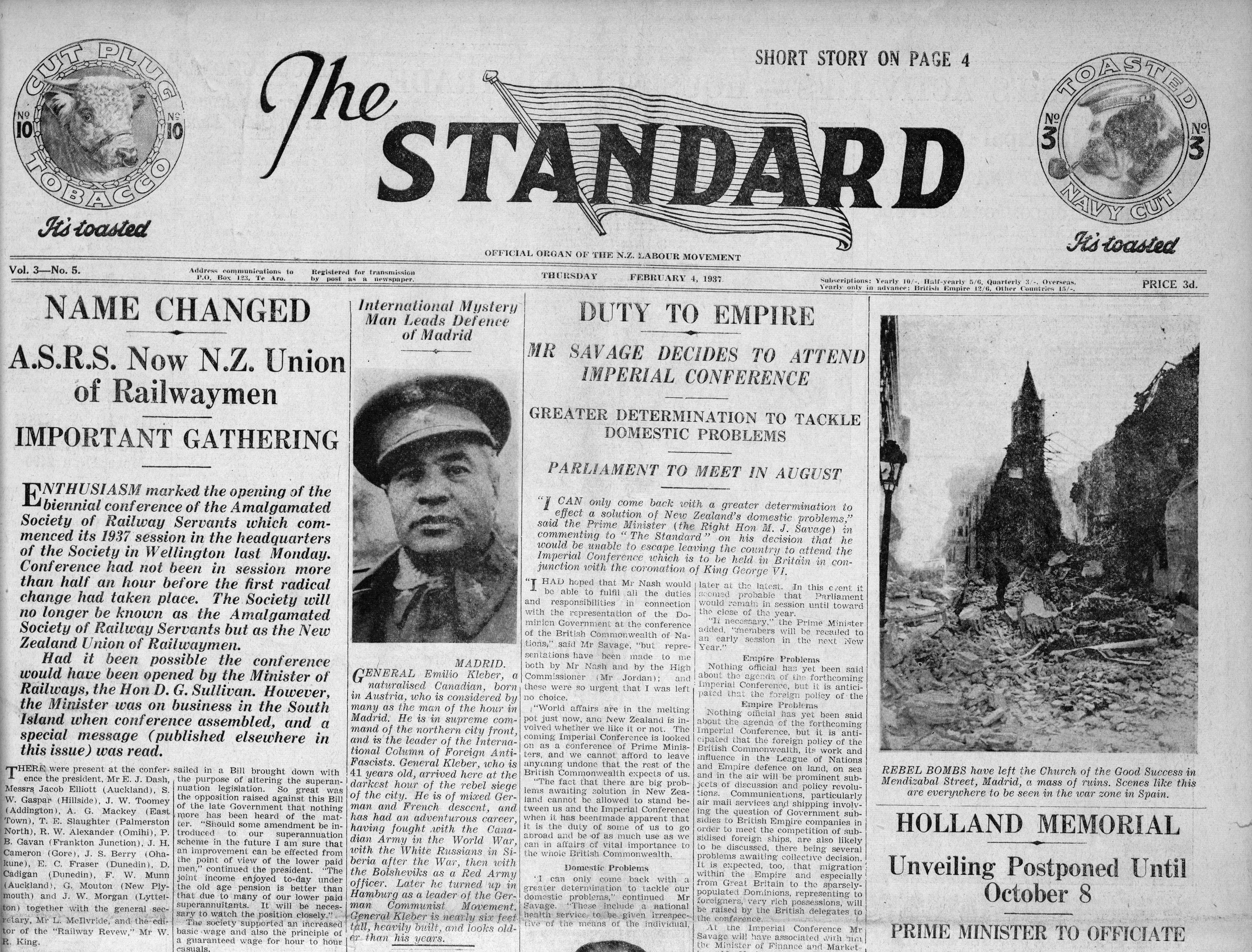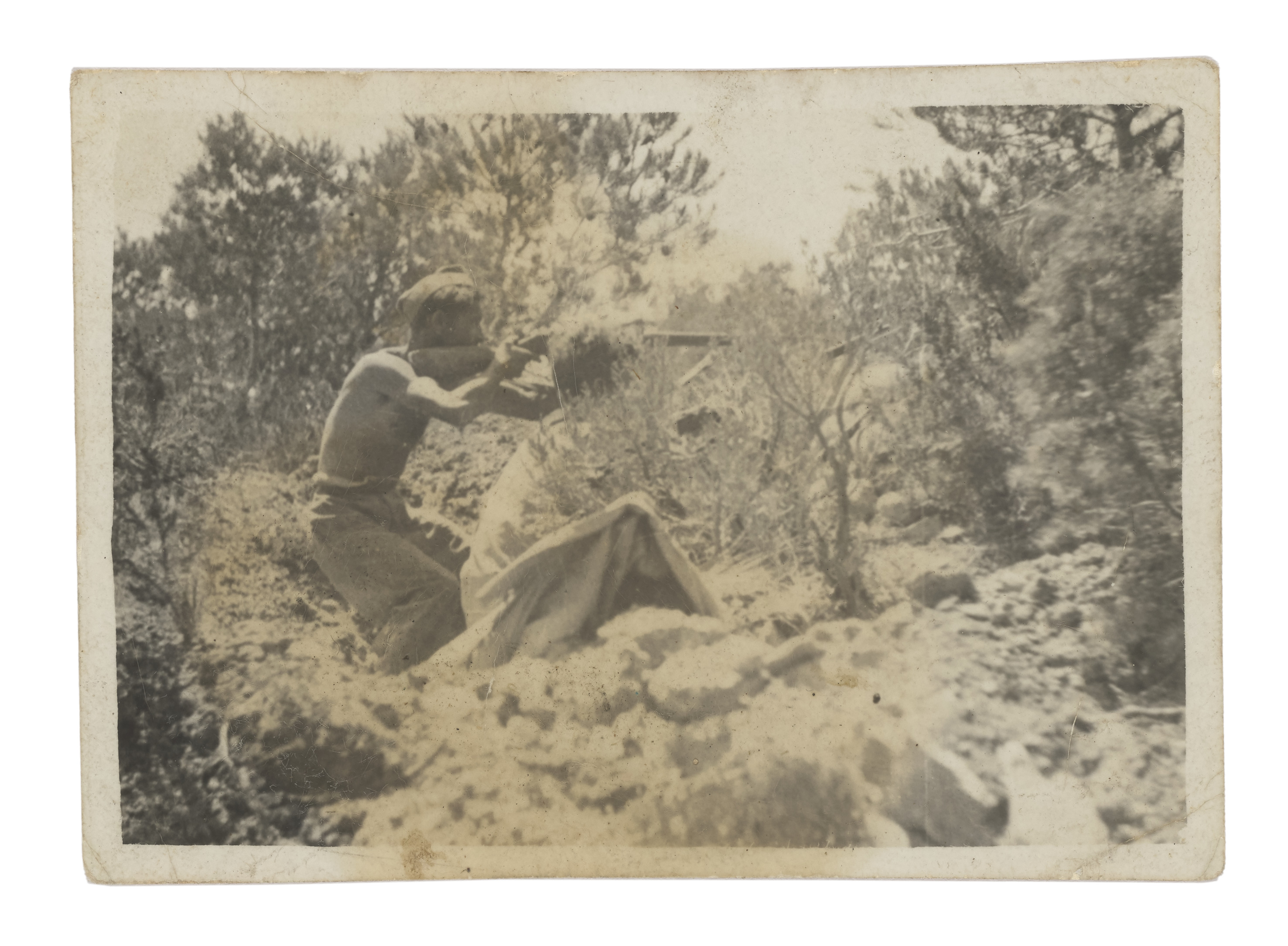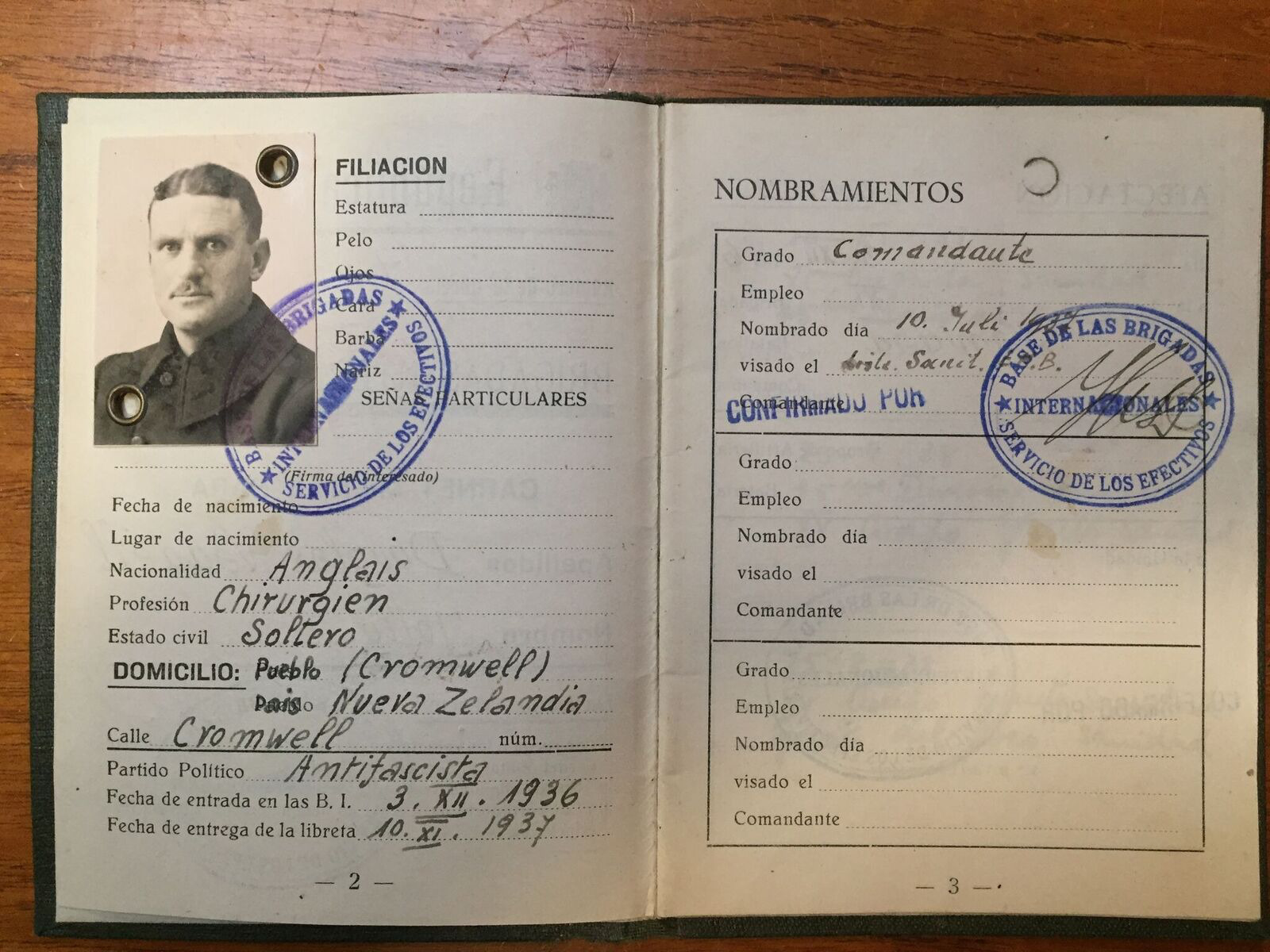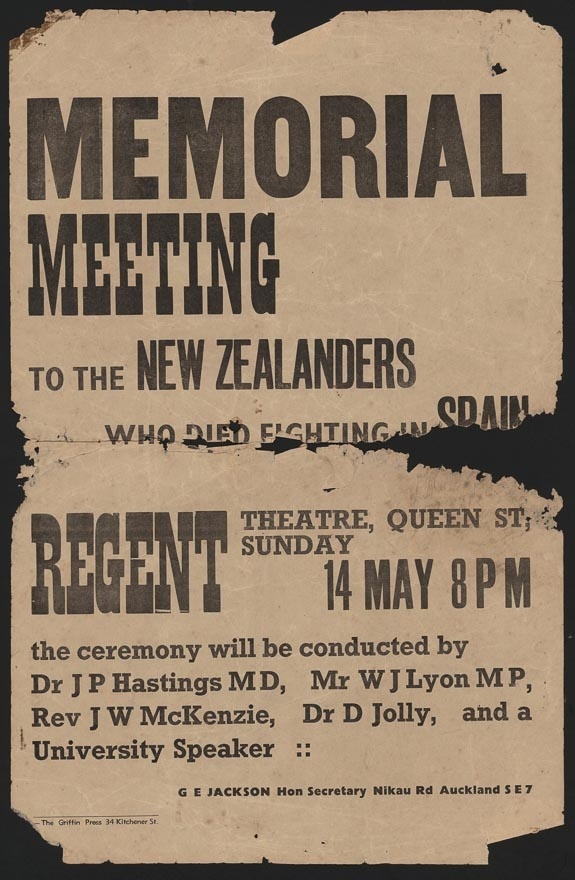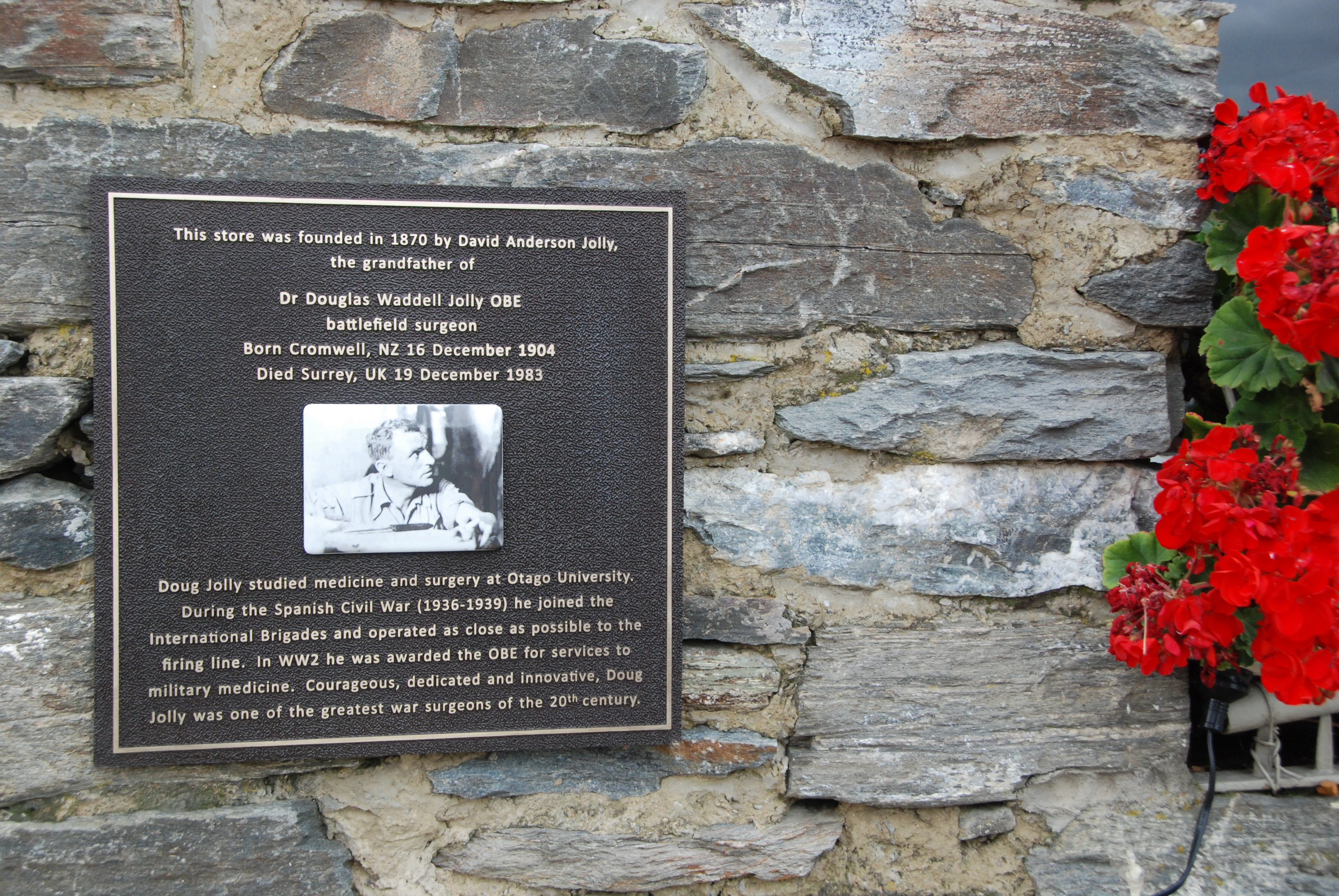New Zealand’s first Labour government was elected just months before the Spanish Civil War broke out. It had promised to provide better housing, health and education services regardless of people’s ability to pay for them, and was naturally sympathetic to the democratic spirit and policies of Spain’s Republican government. Yet its response to the crisis in Spain was modest and muted, for several reasons. The government was preoccupied by domestic concerns, the country had no economic or other links with Spain, and New Zealand remained a Dominion of Great Britain, which controlled its foreign policy and insisted on allegiance to the stated stance of ‘strict neutrality.’
In spite of these considerable limitations, small and distant New Zealand responded to the civil war in Spain to a surprising extent. Most notably, a number of New Zealanders volunteered to serve in the International Brigades, and five of them were killed doing so. Others served with distinction in Spain as doctors, nurses, and as a journalist.
At least one New Zealander, the film-maker Philip Cross, is known to have served in the civil war on the side of Franco’s Nationalists, while within New Zealand itself, the Catholic Church was a prominent and vocal supporter of Franco. However, almost all New Zealand volunteers, both combatant and non-combatant, served with Republican forces. On the home front the population tended to be either indifferent to events in Spain or cautiously pro-Republican.
New Zealand’s representative at the League of Nations was at times the only voice to vote with China and the USSR for international action in support of the Spanish Republic. Thousands of pounds were raised by several national aid organisations, especially the Spanish Medical Aid Committee, which funded a team of three nurses, an ambulance and laundry truck for the Republican front.
For some 70 years after the Spanish Civil War, New Zealand’s modest yet impassioned response to that conflict was largely forgotten. World War Two and its prolonged aftermath tended to entirely overshadow, in the minds of most New Zealanders, the much smaller and far-distant civil war. The 21st century, however, has seen fragmentary but noticeable evidence of renewed public interest in the civil war and this country’s response to it. Several books on the subject have been published, at least one major conference held, and a few memorials established at historical sites. An overseas conflict that was once dismissed as irrelevant to this country apart from the participation of “a few mercenaries” is increasingly seen as premonitory of and significant to New Zealand’s role in World War Two, and an early instance of this country’s readiness to take an independent and principled stance in world affairs.








